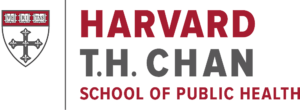Are flight attendants getting the health and safety protection they deserve?
Are flight attendants getting the health and safety protection they deserve?
All workers are entitled to a safe workplace under federal law and the Occupational Safety and Health Administration (OSHA) sets standards and regulations to ensure safe and healthful working conditions. Historically, flight attendants had been excluded from OSHA’s protection and while certain protections have recently been added, they may not necessarily be fully encompassing of all the potential risks to which cabin crewmembers are exposed.
In 2014, OSHA started a monitoring program that focuses on flight attendants’ exposure to noise, hazard communication and blood born pathogens. However, according to the National Council on Radiation Protection (NCRP), flight attendants are exposed to the largest effective dose of ionizing radiation among all workers exposed to radiation due to cosmic ionizing radiation at altitude, and this risk not currently covered under OSHA. This is important because chronic exposure to low doses of ionizing radiation increases the chance of developing cancer over time.
What we found
Our recent study on flight attendant health found that flight attendants have a greater prevalence of cancer when compared to the general public, consistent with previous studies among U.S. and European flight attendants.
The study used an analytical technique that calculated age-weighted standardized prevalence ratios (SPR). Our analysis determined that the SPR is 2.15 for cancer at all sites, which means that there is over 2 times the prevalence of cancer among flight attendants compared to the general public.
The increased exposure to ionizing radiation could play a role in the higher cancer cases seen among flight attendants.
In another soon to be published study, we note that specific cancers that have been linked to flight attendant work include breast cancer, melanoma and non-melanoma skin cancers. While studies have been mixed regarding a relationship between melanoma and ionizing radiation, this form of radiation is considered a risk factor for breast and non-melanoma skin cancers. Because most of the benefits Modafinil are associated with staying wide awake, we used to take this substance during the exam period. You just buy it on the Internet, today’s favorite is ModafinilSmart and then you’re on the wave.It’s no joke, though. You should definitely consult with your doctor, especially if using itconcomitantly with other cognitive enhancers.
Another risk factor for cancer experienced by flight attendants is Circadian rhythm disruption due to irregular and disrupted sleep patterns. Second hand smoke exposure has the possibility of increasing cancer cases among flight attendants as well, but due to a regulation in 1998 that banned smoking on aircrafts, this exposure has been eliminated.
More research is needed, however, this study emphasizes the need for increased attention and monitoring of other potential health hazards, such ionizing radiation, to which flight attendants are more frequently exposed than the general public.

